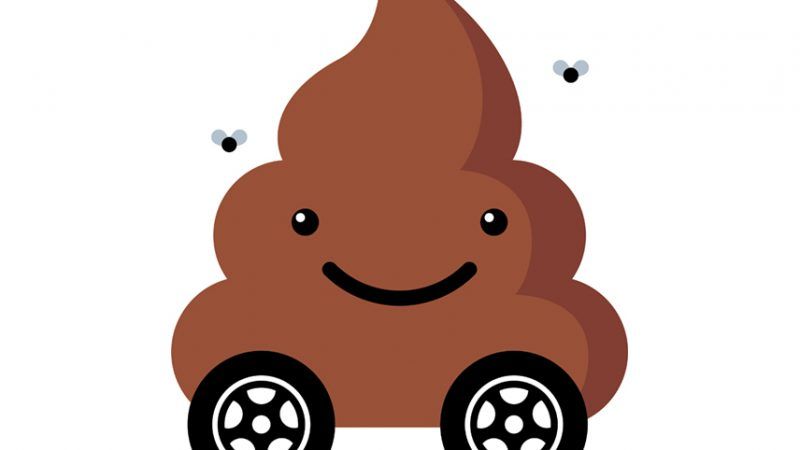Uber, but for Poop

Everybody poops, but not everybody has to deal with a cartel when trying to dispose of it.
This is a widespread problem for residents of Dakar, capital of Senegal. The city's sanitation relies heavily upon septic tanks and latrine pits, which have to be routinely emptied. If not drained on a frequent basis, the latrine systems overflow, wreaking (or reeking?) havoc on residents.
Roaming the city are large tanker trucks equipped with industrial pumps to extract human waste. Driving these trucks are individuals known as "toilet suckers." These men work together as an association with fixed prices and a collective noncompete agreement. In other words, they are a cartel. The truckers congregate at central locations in various communities in Dakar, where local residents can approach them about their services. Costs range from the equivalent of $40 to $60 depending on the size of the pit.
For many residents in Dakar, 46 percent of whom live below the poverty line, paying for this service eats up a significant chunk of their incomes. A lot of people are reduced to—for a lack of better words—illegal dumping, where they drain their own pits and bury the waste in holes they dig, usually in alley ways.
A black market for illegal dumping has emerged in which entrepreneurs—colloquially named "father shovels"—offer this service at a much lower rate than the trucker suckers.
The suckers argue their high price is justifiable because of transaction costs. They spend half their days "negotiating" in parking lots, they say, and the other half driving around to the various job sites. They also incur costs due to police corruption, since cops in the city often see them as targets for bribes.
Government intervention was tried to address this problem. Publicly funded campaigns highlighted the health risks associated with illegal dumping. Sewage inspectors investigated illegal burial sites and issued fines. None of these methods proved effective in reducing the practice.
What actually helped to solve the problem was technology.
Innovations for Poverty Action, a nonprofit that sends teams of economists into developing nations, arrived in Dakar in 2011 to research and potentially address the challenge of illegal dumping. Spearheaded by Molly Lipscomb, assistant professor of public policy and economics at the University of Virginia, this group created a program that directly connected consumers and individual truckers using a rudimentary phone system. Call it Uber for poop—Poober if you will.
"Do you hate it when people call this Uber for poop?" Robert Smith, host of Planet Money, asked Lipscomb during a recent podcast. "No, no," she replied. "You know, Uber is a very well-functioning market, and I think they've done great things for transportation. So if this is Uber for poop, that's great."
How does Poober work? Lipscomb's team first reached out to the truckers to introduce the idea that competitive bidding could actually be more profitable for them on an individual basis. Those who volunteered to participate in the program provided their contact information, which was then funneled to a local call center.
The dispatchers there developed a strategy to take inbound requests and gather information from customers looking to empty their latrines. When calls came in, agents at the center would send a text message detailing the job lead—location, size of pit, etc.—to 10 randomly selected truckers. The truckers in turn would have an hour to respond to the text with a price, and the lowest bidder would be awarded the job. An advertising campaign was launched to inform residents of the new service.
The final results are currently being analyzed and tabulated by Lipscomb and her team, but she hints that overall prices for customers declined by roughly 7 percent on average. Truckers win as well thanks to the reduced transaction costs—less time waiting for job leads, less mileage driving all over town for jobs, and fewer shakedowns by local police due to more targeted routes. Overall, this is a net gain for both the supply and the demand sides of Dakar's waste disposal market.
If successful, this program can be rolled out to other surrounding communities who struggle with the same issues. The days of Senegal's poop cartels are likely numbered.
This article originally appeared in print under the headline "Uber, but for Poop."


Show Comments (18)